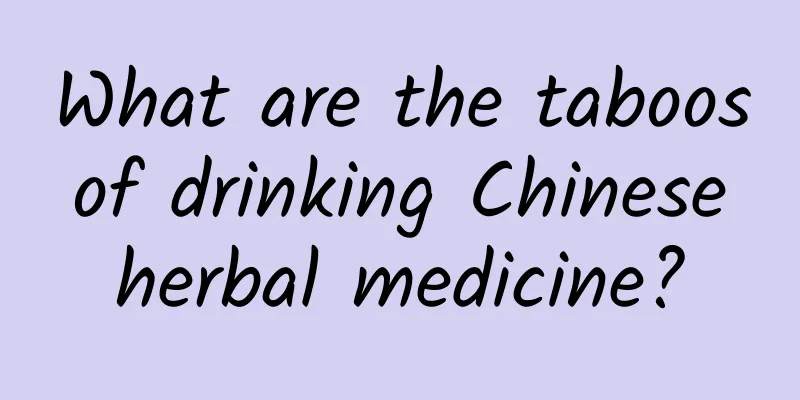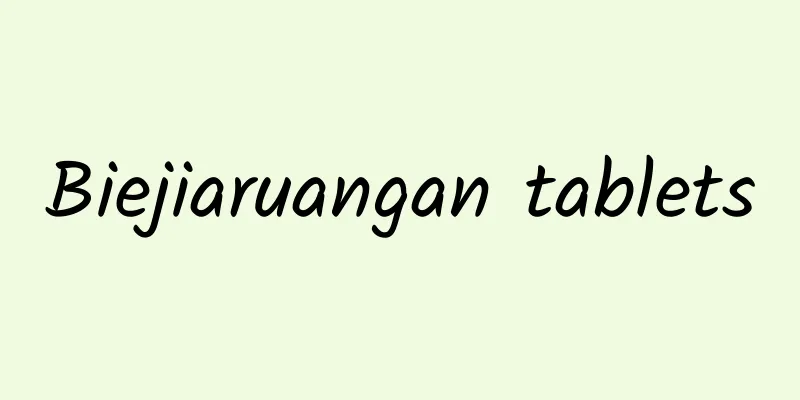What are the taboos of drinking Chinese herbal medicine?

|
As people in modern society continue to raise their demands for their physical health, many friends with illnesses have realized that they can no longer rely solely on Western medicine to solve their problems. Because Western medicine only treats the symptoms and not the root cause, and long-term use will cause some side effects to your body. Therefore, the application of Chinese herbal medicine will become more common, so what are the taboos of drinking Chinese herbal medicine? In order to better solve this question, let us learn together. 1. It is best to take Chinese medicine 30-60 minutes after a meal to avoid the irritation of the gastric mucosa by the Chinese medicine ingredients. 2. It is best not to drink tea, coffee, milk or soy milk about one hour before or after taking Chinese medicine, so as to avoid chemical reactions between the Chinese medicine ingredients and the tannins, caffeine and proteins in the tea, which may affect the efficacy. You can drink water. 3. If you feel uncomfortable or have diarrhea after taking Chinese medicine, please contact us in time. If you have a cold or cough, please stop taking the decoction. 4. If you feel the taste is bitter, you can add some sugar before taking it! Avoid radish It is not advisable to eat raw radish when taking Chinese medicine (except for taking qi-regulating and phlegm-resolving medicines), because radish has the effects of helping food and breaking up qi. Especially when taking tonic Chinese medicines such as ginseng and astragalus, eating radish will weaken the tonic effects of ginseng, reduce the efficacy of the medicine and fail to achieve the therapeutic purpose. Avoid eating raw or cold food Raw and cold foods are mostly cold in nature and difficult to digest. Raw and cold foods can also easily irritate the gastrointestinal tract and affect the gastrointestinal absorption of drugs. What are the taboo foods when taking Chinese medicine? Therefore, when taking Chinese medicine to treat "cold symptoms", such as warming the meridians and unblocking the collaterals, dispelling cold and dampness, or strengthening the spleen and warming the stomach, you must not avoid raw and cold foods. Avoid strong tea Generally, do not drink strong tea when taking Chinese medicine, because tea contains tannic acid. Strong tea contains more tannic acid. When taken with Chinese medicine, it will affect the body's absorption of the active ingredients in the medicine and reduce its efficacy. Especially when taking "ejiao" and "tremella", avoid taking them with tea. Taking them at the same time will cause the tannic acid, bioalkali, etc. in the tea to precipitate, affecting the body's absorption. If you have the habit of drinking tea, you can drink a little green tea, and it is best to drink it 2 to 3 hours after taking the medicine. The above paragraphs have revealed some of the taboos of drinking Chinese herbal medicines. I sincerely hope that my friends can read the above content carefully so that they can better control Chinese herbal medicines and maximize their efficacy, while also avoiding more accidents in the process of treating diseases. Therefore, what we learned today needs to attract more attention. |
<<: What are the contraindications of taking Chinese medicine for stomach treatment?
>>: What are the taboos of longan, pepper and moxa?
Recommend
What are the effects of Astragalus?
As for what effect does Astragalus have, I believ...
Does Angelica have any effect on pregnant women?
It is well known that angelica nourishes women. T...
Is it better to take Shenling Baizhu San before or after meals?
The health of the stomach and intestines is relat...
What are the effects of drinking water soaked with divinyl wood?
I believe that many people have heard of the meth...
The efficacy and function of Qingtiankui
What are the functions of Qingtiankui? As a tradi...
Strong winds break records, hail covers the ground! This year's most intense severe convective weather is coming, how to prevent it
Starting from yesterday afternoon (April 11), due...
The efficacy and function of schisandra chinensis
Yam Bean Seed is a commonly used medicinal materi...
The efficacy and function of Hovenia dulcis juice
Hovenia dulcis juice is a medicinal material and ...
Drink white snake grass and barbata every day
Modern pharmaceutical research has confirmed that...
Medallia: B2B Customer Experience Benchmark Report
A good customer experience is a great way for B2B...
What are the effects of Panax notoginseng wine?
You have often heard of Panax notoginseng soaked ...
The efficacy and function of the yellow flower lice hemp head
Friends who don’t know about the Yellow Flower Li...
What is the role of centipede in traditional Chinese medicine
Centipede, also known as millipede or hundred-leg...
The efficacy and function of plum
Plum is a medicinal material. If we have some und...
The efficacy and function of Dapaotongpi
The nutritional value of Dapaotongpi is rich and ...









